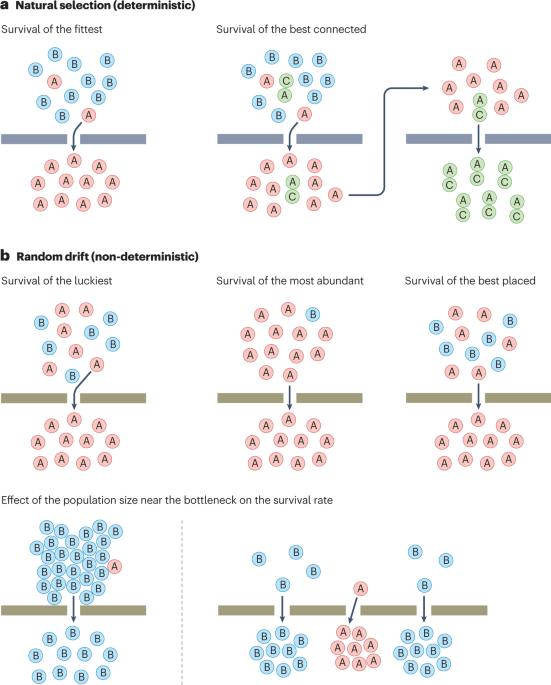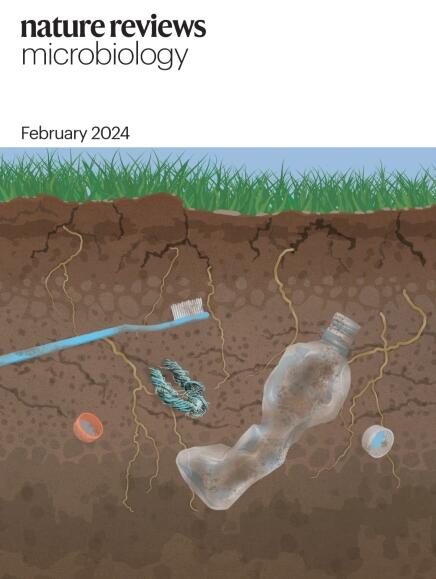Translating eco-evolutionary biology into therapy to tackle antibiotic resistance
IF 103.3
1区 生物学
Q1 MICROBIOLOGY
引用次数: 4
Abstract
Antibiotic resistance is currently one of the most important public health problems. The golden age of antibiotic discovery ended decades ago, and new approaches are urgently needed. Therefore, preserving the efficacy of the antibiotics currently in use and developing compounds and strategies that specifically target antibiotic-resistant pathogens is critical. The identification of robust trends of antibiotic resistance evolution and of its associated trade-offs, such as collateral sensitivity or fitness costs, is invaluable for the design of rational evolution-based, ecology-based treatment approaches. In this Review, we discuss these evolutionary trade-offs and how such knowledge can aid in informing combination or alternating antibiotic therapies against bacterial infections. In addition, we discuss how targeting bacterial metabolism can enhance drug activity and impair antibiotic resistance evolution. Finally, we explore how an improved understanding of the original physiological function of antibiotic resistance determinants, which have evolved to reach clinical resistance after a process of historical contingency, may help to tackle antibiotic resistance. In this Review, Martínez, Hernando-Amado and colleagues explore how eco-evolutionary-based approaches can aid in the design of successful antibiotic therapies, including the exploitation of evolutionary trade-offs, targeting bacterial metabolism and studying the ancestral functions of antibiotic resistance determinants.

将生态进化生物学转化为治疗抗生素耐药性的方法。
抗生素耐药性是目前最重要的公共卫生问题之一。抗生素发现的黄金时代在几十年前就结束了,迫切需要新的方法。因此,保持目前使用的抗生素的疗效,开发专门针对抗生素耐药性病原体的化合物和策略至关重要。确定抗生素耐药性演变的稳健趋势及其相关权衡,如附带敏感性或适应度成本,对于设计基于合理进化、基于生态学的治疗方法是非常宝贵的。在这篇综述中,我们讨论了这些进化的权衡,以及这些知识如何有助于为针对细菌感染的联合或交替抗生素治疗提供信息。此外,我们还讨论了靶向细菌代谢如何增强药物活性并削弱抗生素耐药性的演变。最后,我们探讨了如何更好地理解抗生素耐药性决定因素的原始生理功能,这些决定因素在经历了一个历史偶然性的过程后演变为临床耐药性,从而有助于解决抗生素耐药性问题。
本文章由计算机程序翻译,如有差异,请以英文原文为准。
求助全文
约1分钟内获得全文
求助全文
来源期刊

Nature Reviews Microbiology
生物-微生物学
CiteScore
74.00
自引率
0.50%
发文量
149
审稿时长
6-12 weeks
期刊介绍:
At Nature Reviews Microbiology, our goal is to become the leading source of reviews and commentaries for the scientific community we cater to. We are dedicated to publishing articles that are not only authoritative but also easily accessible, supplementing them with clear and concise figures, tables, and other visual aids. Our objective is to offer an unparalleled service to authors, referees, and readers, and we continuously strive to maximize the usefulness and impact of each article we publish. With a focus on Reviews, Perspectives, and Comments spanning the entire field of microbiology, our wide scope ensures that the work we feature reaches the widest possible audience.
 求助内容:
求助内容: 应助结果提醒方式:
应助结果提醒方式:


